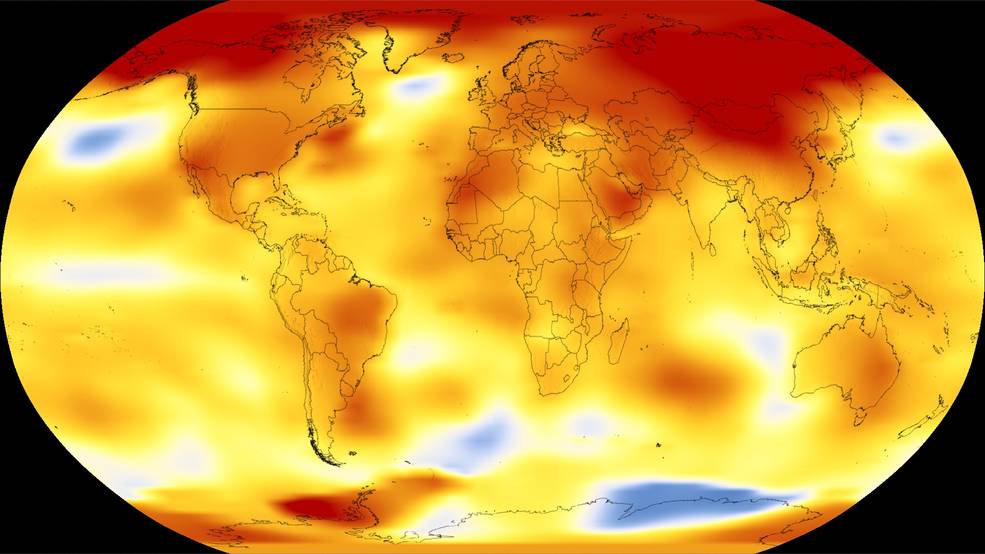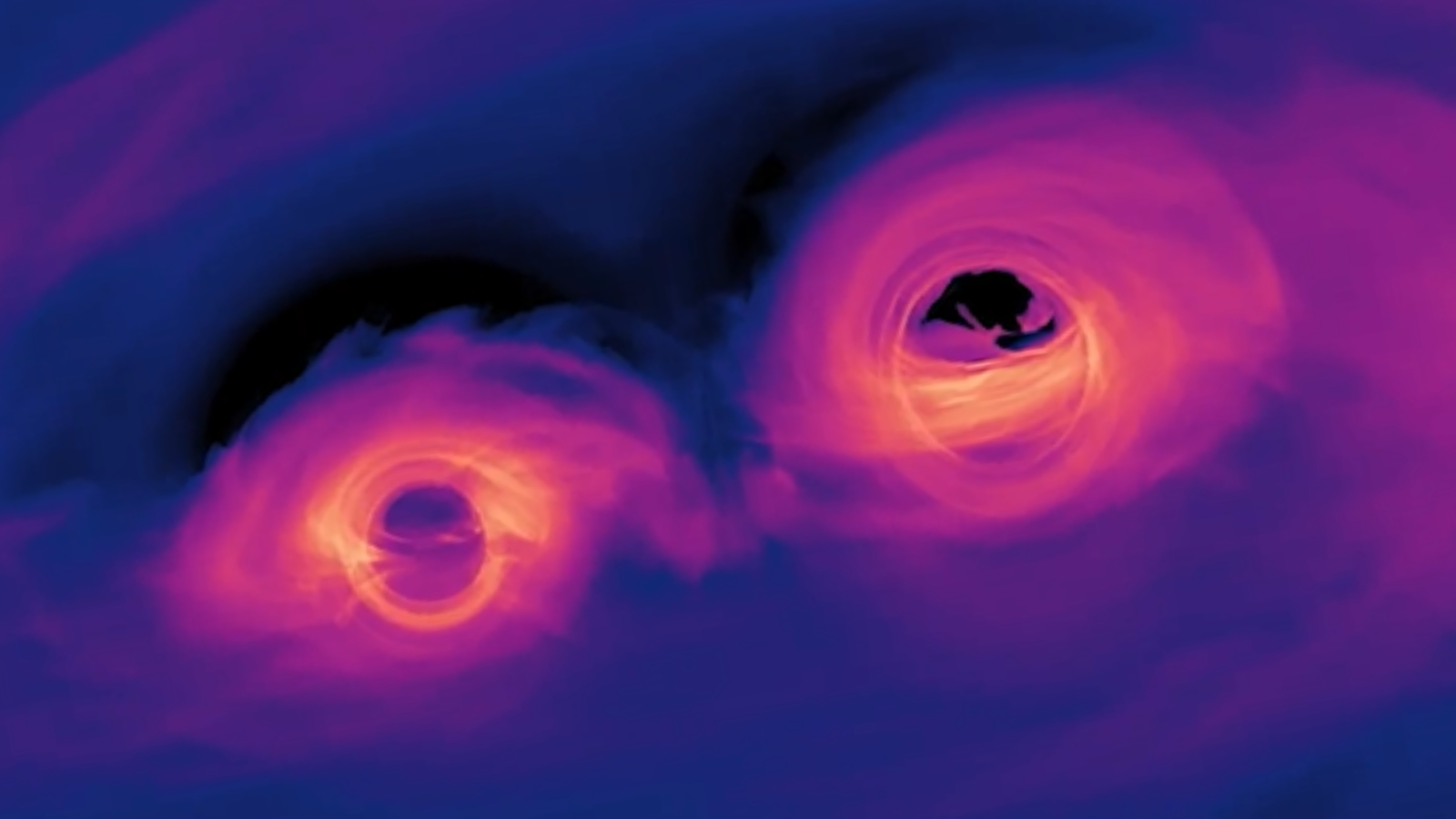NASA, NOAA to Release Update on Earth's Climate 2018 Global Temperatures Today
Breaking space news, the latest updates on rocket launches, skywatching events and more!
You are now subscribed
Your newsletter sign-up was successful
Want to add more newsletters?

Delivered daily
Daily Newsletter
Breaking space news, the latest updates on rocket launches, skywatching events and more!

Once a month
Watch This Space
Sign up to our monthly entertainment newsletter to keep up with all our coverage of the latest sci-fi and space movies, tv shows, games and books.

Once a week
Night Sky This Week
Discover this week's must-see night sky events, moon phases, and stunning astrophotos. Sign up for our skywatching newsletter and explore the universe with us!

Twice a month
Strange New Words
Space.com's Sci-Fi Reader's Club. Read a sci-fi short story every month and join a virtual community of fellow science fiction fans!
Scientists with NASA will unveil the latest climate trends and global temperature measurements for Earth today (Feb. 6) and you can follow the announcement live online.
SNASA and the National Oceanic and Atmospheric Administration (NOAA) "will provide the annual release of global temperatures data and discuss the most important climate trends of 2018" in a teleconference today at 11:30 a.m. EST (1630 GMT). The audio will stream at NASA.gov/live and will be simulcast on Space.com here, courtesy of NASA.
The participants will include Gavin Schmidt, director of NASA's Goddard Institute for Space Studies, and Deke Ardnt, chief of the global monitoring branch of NOAA's National Centers for Environmental Information, NASA officials said in a statement. [What Is the Temperature of Earth?]
NASA and NOAA independently monitor the Earth's surface temperatures and changes based on observations of both land areas and oceans, using a network of satellites scattered in Earth orbit. While most people associate climate change with rising sea levels and melting glaciers, the effects of global warming are more profound than most realize.
For example, scientists from scientists from Lawrence Livermore National Laboratory (LLNL) – and five other organizations – discovered last year that human-induced climate change is even extending into the atmosphere. Carbon dioxide emissions flow into the troposphere (the lowest level of Earth's atmosphere) and increase the contrast between cold winters and hot summers.
A separate University of Iowa-led 2018 study of hurricanes suggests that some of these massive storms throw down 10 percent more rainfall today, compared with the period before climate change. That's expected to worsen to up to 30 percent more rainfall, according to simulations. Peak wind speeds could also pick up by as much as 33 mph (53 km/h).
Follow us on Twitter @Spacedotcom and on Facebook. Original article on Space.com.
Breaking space news, the latest updates on rocket launches, skywatching events and more!

Elizabeth Howell (she/her), Ph.D., was a staff writer in the spaceflight channel between 2022 and 2024 specializing in Canadian space news. She was contributing writer for Space.com for 10 years from 2012 to 2024. Elizabeth's reporting includes multiple exclusives with the White House, leading world coverage about a lost-and-found space tomato on the International Space Station, witnessing five human spaceflight launches on two continents, flying parabolic, working inside a spacesuit, and participating in a simulated Mars mission. Her latest book, "Why Am I Taller?" (ECW Press, 2022) is co-written with astronaut Dave Williams.

